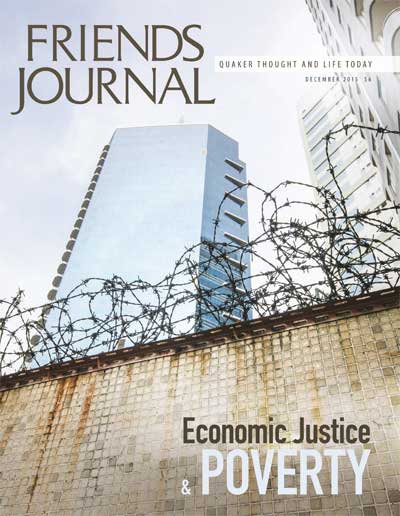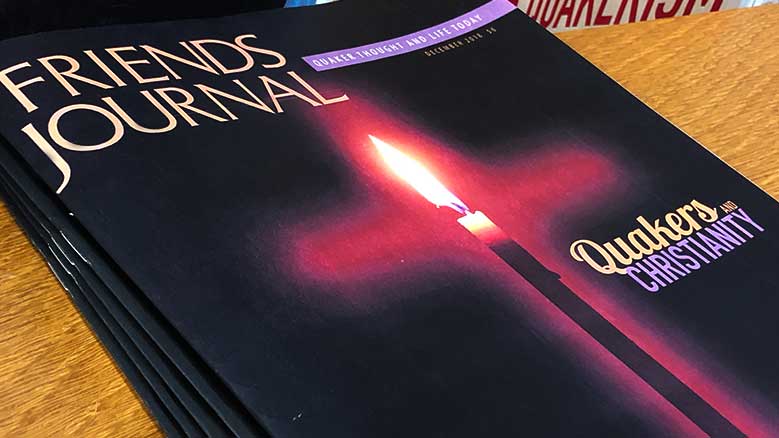I am troubled. At first, I thought my concern was just the classism inside the Religious Society of Friends. Most of us know the story: once our spiritual forebears came to this country, Friends started out by doing good and ended up doing very well. There are a lot of theories about how this came about. Primarily, most historians believe that people trusted Quakers in businesses because they trusted Quakers to be honest.
Unfortunately, though, it wasn’t long before classism started to be a problem. The most notable is how Friends began to emulate their economic equals. As a result, many of these newly wealthy Friends began to own slaves, somehow ignoring that slavery was against their own spiritual testimony on equality.
For years, I’ve watched classism grow in our Society. Indeed, many who look at our Society today don’t see the farmers and small business owners that made up most meetings in our early years, they see instead a Society largely populated by academics, upper-middle-class families, professionals, and mostly white.
With a PhD, I can easily pass for middle class, but I’m really not anymore. I can look middle class and talk middle class, but I can’t afford middle class. Indeed, I notice that I don’t even hear talk of classism among Friends. We experience classism, but we don’t use the word. I do recall once reading about a Friend who was annoyed at what to her sounded like classism. Other Friends around her would unintentionally brag about trips overseas and other such luxuries that she could not afford. I have often felt the same way in my own meeting.
But the other day, I started again to read a book by one my favorite famous Friends, John Woolman. He didn’t use the word “classism,” but it was clear that he was also troubled as he watched the increasing wealth among Friends and what he saw happening to the Society because of it.
Woolman called wealth a “cumber” to following the Spirit. He saw it as an interference in one’s spiritual life. He gave up a thriving tailoring business because of what it did to his relationship with God. As he traveled in his work to change hearts and minds about slavery, he was constantly faced with choices when he visited wealthy Friends. For instance, he didn’t drink from glasses made of silver (which had “seeds of slavery” in them), and on many occasions, he actually paid the slaves who had provided him comforts during his stay.
In Woolman’s time, even wealth among Friends was simpler than it is now. Wealth is so much bigger today and so is the “cumber” it involves. We don’t often think of it. These days, we ask, “How much time do we spend on our stock portfolios? How much time do we (or our paid help) spend cleaning and working on our relatively large houses? How much overtime work do we feel compelled to do? How much time do we spend traveling to other countries, or even in our own country for that matter, especially to Quaker gatherings?”
But we rarely ask, “How much time do we spend in worship?”
Woolman was right. That last question often gets dropped from our to-do lists. Most Friends probably don’t think of themselves as wealthy, but an increasing number of us are. But even if we aren’t in the infamous upper one percent in wealth, our testimonies on integrity and simplicity can rightly lead us to consider what even some wealth can mean to our spiritual lives.
When we look at the possessions we have, are there not only seeds of war in them but also seeds of injustice? Was that cheap t-shirt we found produced by sweatshop labor? Does the cell phone we bought contain minerals mined in unsafe ways? Was the hamburger from the fast food place cooked and served by people who can’t live on their low wages?
Woolman asked a good question. Does even a little wealth really blind us spiritually? When we look at our possessions, we should ask, what seeds are we really sowing: war and injustice or peace and equality?





Comments on Friendsjournal.org may be used in the Forum of the print magazine and may be edited for length and clarity.